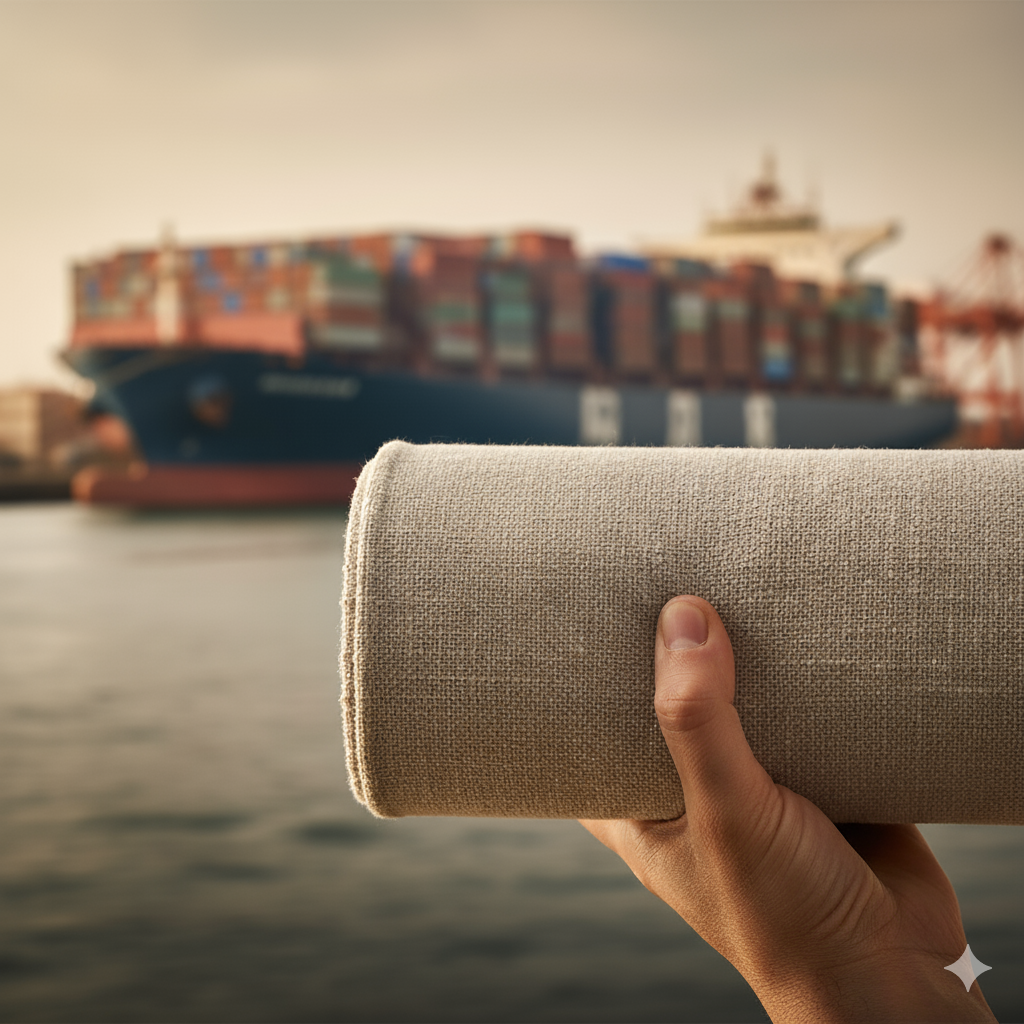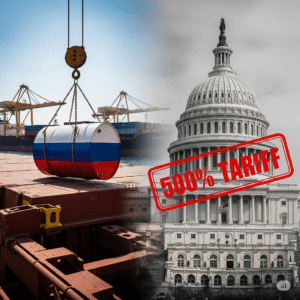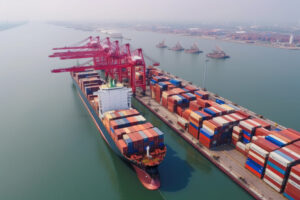Akash Gupta | AI Generalist & Content Specialist, Sunshine Cargo Services, Kolkata, India — November 06, 2025
Are you an Indian textile manufacturer feeling the heat from cheap imports? Many domestic players have struggled against unfairly priced goods entering the country. This situation, known as dumping, hurts local businesses and suppresses prices. To counter this, India has extended a critical trade shield.
The Ministry of Finance just continued the Anti-Dumping Duty (ADD) on flax fabric from China PR and Hong Kong for another five years. This definitive action follows a detailed review by the Directorate General of Trade Remedies (DGTR). It ensures a level playing field for domestic flax producers like the applicants, Grasim Industries Limited-Jaya Shree Textiles.
This move is vital for compliance and protecting India’s valuable textile sector.
Key Takeaways
Duty Extension: India extended the ADD on flax fabric imports from China PR and Hong Kong for a period of five years.
Purpose: The duty is a protective measure against the continued dumping of low-priced goods that were causing material injury to Indian manufacturers.
New Rates: The duties are set at USD 2.36 per meter for China PR and USD 1.14 per meter for Hong Kong, effective from November 7, 2025.
What is Anti-Dumping Duty (ADD) and Why is it Imposed?
Dumping happens when a foreign company sells products in India for less than their normal value. The normal value is usually the price in their home market. This is an unfair trade practice.
In short: Anti-Dumping Duty (ADD) is an extra tax placed on imported goods. This tax is levied when foreign goods are priced unfairly low (dumped) and cause significant financial harm (material injury) to domestic industries.
Unfair Pricing and Material Injury
The core of an anti-dumping action involves two findings. First, the designated authority must prove the goods are being dumped. Second, the authority must prove this dumping is causing material injury to local producers.
The Indian government uses the framework laid out in the Customs Tariff Act, 1975. This law gives the power to levy duties under specific conditions. The DGTR investigates these complaints according to the Anti-Dumping Rules, 1995.
Mini-Case: The Price Suppression Effect
Consider a local Indian producer of flax fabric. Their cost to make one meter is $2.00. Imported flax fabric from China is being sold for $1.80 per meter in India. This price is below the Indian company’s cost.
The Indian company cannot compete at $1.80 without losing money. They are forced to lower their own price, a phenomenon called price suppression. This leads to lower profits, job cuts, and reduced investment. This financial harm is the “material injury” that the ADD is meant to correct.
The DGTR concluded that, in the case of flax fabric, this price suppression was severe.
The DGTR’s Sunset Review: Why the Duty Had to Continue
Anti-dumping duties are not permanent. They are initially imposed for five years. Before this period ends, the DGTR must conduct a sunset review.
In short: The sunset review determined that dumping and injury would likely continue if the duty was removed. The investigation found that imports from China PR and Hong Kong increased significantly despite the existing duty.
The review, initiated in March 2025, looked at the five-year period since the last duty was imposed in 2020. The final findings were published in August 2025.
The DGTR’s final conclusion was clear. The cessation of the ADD would likely lead to a recurrence of both dumping and injury. The Authority recommended the duty be extended to protect the domestic industry.
“The volume of imports from subject countries have increased in both absolute and relative terms, despite existing duties,” the Directorate General of Trade Remedies (DGTR) noted in its August 8, 2025 final findings, confirming the aggressive nature of the dumping.
New ADD Rates and The Official Customs Notification
Based on the DGTR’s recommendation, the Ministry of Finance made the extension official. They used their powers under the Customs Tariff Act, 1975.
In short: The Ministry of Finance’s Notification No. 31/2025-Customs (ADD) made the anti-dumping duty effective for another five years, setting specific rates per meter of fabric.
The new notification supersedes the previous 2020 order. It extends the duty for five years from the date of publication, which was November 7, 2025.
The Specific Duty Levies
The duty is calculated on a per-meter basis for Flax or Linen fabric containing more than 50% flax. The rates are different based on the origin/exporting country:
China PR: USD 2.36 per meter
Hong Kong: USD 1.14 per meter
This financial barrier is intended to neutralize the price advantage of the dumped goods. It aims to restore fair pricing for domestic manufacturers.
Impact on India’s Flax and Linen Textile Industry
This ADD extension is a major relief for the domestic flax fabric manufacturers. The product is also known as “linen fabric.” The main applicant for the original investigation was Jaya Shree Textiles, a unit of Grasim Industries Limited.
In short: The duty extension provides a necessary shield for the domestic linen textile industry, stabilizing prices, protecting market share, and encouraging investment in local production capacity.
The Indian textile industry is a cornerstone of the economy, providing millions of jobs. Anti-dumping duties act as a vital defensive mechanism.
The Dual Effect of Protection
Price Stabilization: The ADD forces the landed price of Chinese and Hong Kong flax fabric to rise. This prevents the imported goods from undercutting the local market price. It allows domestic producers to achieve a reasonable profit margin.
Market Share Protection: By stabilizing prices, the duty helps Indian producers regain and maintain market share. The DGTR noted that the market share of domestic industry declined during the investigation period due to imports.
Case Study: Jaya Shree Textiles (Illustrative)
Jaya Shree Textiles has been a consistent voice for the domestic industry. When the dumping started, the company struggled to modernize and invest in capacity. The cost of raw material, flax yarn, was rising. However, the price of the finished fabric was suppressed by cheaper imports.
The first imposition of the ADD in 2020 provided a temporary respite. However, the DGTR’s latest findings confirmed the dumping continued. The five-year extension is expected to provide long-term stability. This stability is crucial for planning capital expenditure and securing jobs. It reinforces India’s textile manufacturing base against global predatory pricing.
Compliance and Future Trade Implications for Importers
Importers of flax fabric must now strictly adhere to the new duty rates. The duty is payable in Indian currency. It uses the applicable exchange rate as per the Customs Act, 1962.
In short: Importers must ensure all shipments of flax fabric from China PR and Hong Kong correctly account for the new, extended anti-dumping duty to avoid penalties and delays.
A Look at HS Codes
The product under consideration—Flax or Linen fabric having flax content of more than 50%—is generally classified under Chapter 53, sub-heading 5309 of the Customs Tariff. Importers and customs brokers must verify the exact classification and duty for every consignment.
Long-Term Trade Strategy
The repeated extension of ADDs, not just on flax fabric but also on products like certain grades of flax yarn, points to a clear trend. India is actively using WTO-compliant trade remedies to protect its manufacturing sector.
Importers must factor in ADD costs when negotiating procurement prices. They should also explore sourcing from countries not subject to the ADD. This is a strategic necessity for stability and cost management.
Common Mistakes in Anti-Dumping Compliance
| Mistake | Quick Fix/Correction |
| Misclassifying the Fabric | Verify that the flax content is indeed more than 50%. The duty applies specifically to this composition (HS 5309). |
| Ignoring the Origin/Export Route | The duty is specific to imports originating in or exported from China PR and Hong Kong. Check both the country of origin and the country of export. |
| Using Outdated Duty Rates | Ensure your customs broker uses the updated rates (USD 2.36/m and USD 1.14/m) as per Notification No. 31/2025-Customs (ADD). |
| Missing the Five-Year Expiry | Note the new expiry date (November 7, 2030) for future trade planning and sunset review monitoring. |
Frequently Asked Questions (FAQs)
What is the primary purpose of the anti-dumping duty extension on flax fabric?
Snippet: The primary purpose of extending the anti-dumping duty on flax fabric is to protect the domestic Indian textile industry from unfair price competition and material injury caused by cheap, dumped imports from China PR and Hong Kong.
Comprehensive Answer: The extension is a direct result of the DGTR’s sunset review investigation. This review concluded that imports of flax fabric (woven fabric with over 50% flax content) from China PR and Hong Kong continue to be dumped into the Indian market. This dumping, characterized by prices significantly below the normal value, has suppressed the selling prices and profitability of the domestic industry. The duty acts as a countervailing measure, neutralizing the price differential and allowing local producers to operate on a level playing field, thereby safeguarding jobs and investment in the Indian textile sector.
Which countries are currently subject to India’s extended anti-dumping duty on flax fabric?
Snippet: India’s extended anti-dumping duty on flax fabric applies exclusively to imports originating in or exported from the People’s Republic of China (China PR) and Hong Kong.
Comprehensive Answer: The Notification No. 31/2025-Customs (ADD) specifically targets China PR and Hong Kong as the subject countries. The DGTR’s investigation found that imports from these two regions were the source of continued dumping and injury to the Indian domestic industry. The specific duty rates are different for each: USD 2.36 per meter for China PR and USD 1.14 per meter for Hong Kong. This measure is country-specific, meaning imports of the same flax fabric from any other country are not subject to this particular ADD.
How long will the new anti-dumping duty remain in effect?
Snippet: The newly extended anti-dumping duty on flax fabric will remain in effect for a period of five years from the date of the official notification, which commenced on November 7, 2025, unless it is revoked or amended earlier.
Comprehensive Answer: In line with the provisions of the Customs Tariff Act, 1975, and WTO agreements, anti-dumping measures have a five-year shelf life. The current notification, dated November 7, 2025, continues the duty for a full five-year term. This provides long-term predictability for the domestic industry. Towards the end of this five-year period (around late 2030), the DGTR would initiate another sunset review to determine if the duty needs to be extended again.
What does “material injury” mean in the context of anti-dumping measures?
Snippet: Material injury refers to the significant economic and financial harm suffered by the domestic industry, which in the flax fabric case included price suppression, loss of market share, and a decline in profitability and return on investment.
Comprehensive Answer: Material injury is a crucial element required for the imposition of an ADD. It is determined by an analysis of various economic factors within the domestic industry. For the flax fabric case, the DGTR’s investigation confirmed a positive causal link between the dumped imports and the injury. Key indicators of injury included the increase in the volume of dumped imports, price undercutting against the domestic selling price, and a corresponding negative impact on financial parameters like profits, cash flow, and return on capital employed (ROCE) for the Indian manufacturers.
Who benefits most from the extension of the anti-dumping duty?
Snippet: The domestic Indian manufacturers of flax fabric, such as Grasim Industries Limited-Jaya Shree Textiles, are the primary beneficiaries, as the duty protects them from unfair competition and allows for better price realization and market stability.
Comprehensive Answer: The direct beneficiaries are the Indian companies that produce flax or linen fabric with over 50% flax content. The duty shields them from the predatory pricing practices of Chinese and Hong Kong exporters. By leveling the playing field, the measure helps to protect the domestic industry’s production, sales, and employment figures. This stability encourages them to invest in capacity and technology, supporting the larger ‘Make in India’ initiative within the textile sector.
Conclusion
The five-year extension of the Anti-Dumping Duty on flax fabric marks a resolute step by the Indian government. This action shields the domestic textile industry from the persistent threat of unfair, cheap imports from China PR and Hong Kong. By stabilizing market dynamics, the Ministry of Finance’s move secures the livelihoods of many and promotes fair competition. It is a vital chapter in India’s use of global trade remedies to protect its economic interests.
Sources & Backlinks
Anti-Dumping Duty on Flax Fabric Import from China, HK — TaxGuru — November 7, 2025 — [https://susodigital.com/textbook/module/how-google-works/the-search-results-page](https://susodigital.com/textbook/module/how-google-works/the-search-results-page)
Final Finding issued recommending continuation of anti-dumping duty on imports of woven fabric (having more than 50% Flax content) commonly known as “Flax Fabric” from China PR and Hong Kong (08.08.2025) — TPM — August 8, 2025 — [https://support.google.com/faqs/answer/7049588?hl=en](https://support.google.com/faqs/answer/7049588?hl=en)
India: Extension of antidumping duty on imports of flax fabrics from China and Hong Kong — Global Trade Alert — November 6, 2025 — [https://support.google.com/websearch/thread/291486764/solved-results-per-page-setting-not-visible?hl=en](https://support.google.com/websearch/thread/291486764/solved-results-per-page-setting-not-visible?hl=en)
Customs Tariff Act, 1975 (as referenced in government notifications) — Government of India — (Date Varies) — [Not a direct web result, but an official source]
sunshine cargo services
private limited
Head Office Address:
Marshall House, Room 574, 33/1, N.S. Road/25, Strand Road, Kolkata West Bengal 700001
Contact:
Deepak Kumar: +91-98300-66760
Manish Kumar: +91-98363-29801
Email:
su************@***oo.com
Working Hours:
Monday-Friday: 10:00 AM to 18:00 PM
Saturday: 10:00 AM to 14:00 PM
Closed on Sundays and Indian Government Holidays.
Service Offices:
Raxaul, Bihar, India
Jogbani, Bihar, India
All Rights Reserved by Sunshine Cargo Services Private Limited.
Developed by FresioMedia.




